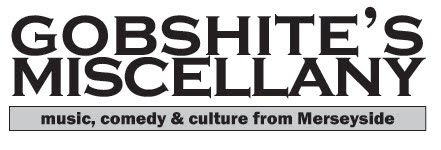RECENTLY in the chat about podcasting I had with Malachi O'Doherty (see below), he remembered following a Dutch TV crew to the scene of a shooting in Belfast about 25 years ago.
Malachi remembers thinking 'We'll get nothing off the police or the injured man so why go?' But when he got there the crew interviewed people on the street and kids coming home from school and assorted people coming and going.
What resulted was a fantastic piece of human interest journalism which said more about the shooting and its effects on the area than any conventional form of news report ever could.
But in this age of being conditioned by the for-and-against style of adversarial journalism (you know the kind: 'Hey, let's talk about the Arab Israeli crisis - and on my left Abu Hamza...) we have rather lost sight of the kind of journalism that Malachi remembered.
Who'd have thunk it? Getting honest to goodness interesting stories from people, real people? This must be one of the ways forward for our industry, especially in an age of PR, spin and councils putting out their own propaganda sheets.
We must look at the effects of process and policy journalism and not the forms themselves. We have got to get back to those we have left behind (not just them venting nonsense in the blogosphere) and look at the prosaic elements of their lives and see the glory of the minutiae of those lives.
The democratic divide doesn't just mean not seeing our democratic bodies in our papers, it means not seeing the effects of what they do in our communities in our papers - two very different things.
But that is a side issue to my point - we need to recover the interesting, valuable people in our communities and write about and/ or broadcast them.
To be hyper local we have to connect with the local and not just in an advertising revenue sense, although that is important.
So who are the interesting people in our communities? The answer? Everyone. Everyone has a story to tell, we have to give them multiple opportunities to tell those stories.
While we in Britain involved in journalism's future have been distracting ourselves looking at networks and imagining building bogus business models based on major American cities full of tech literate people (thought up by a generation US academics who are themselves feathering their own nests BTW), we have lost sight of our everyday reality.
Studs Terkel, whose death a year ago robbed the US of one of its great journalistic talents, spoke to remarkable people from every walk of life. From Martin Luther King at the bedside of Mahalia Jackson to the soldiers and domestic helps he spoke to for The Good War, he was interested in people rather than their news worthiness. Their human worth was more valuable than any kind of manufactured hook to hang them on for the perceived audience.
And it is this model we should be looking to in the new age.
Wrestle away the blogosphere from the mountains of people interested solely in themselves, their shopping lists and scatter gun reactionary opinions and get them to write about other people - and who can do this best? Journalists.
Who can be at the heart of the knowledge transfer which perpetuates this new form of journalism? You guessed it, journalists and media organisations.
The first professional job I had in journalism was on the Crosby Herald 15 years ago. It's a paper in a small town which is essentially a suburb of Liverpool and the growth of Liverpool is changing Crosby's old distinctiveness by the week, almost.
But in all the sports teams and groups our daughter is now involved in and the church groups I go to, I get the sense that everyone wants to know the same kinds of information I once gathered for the Herald.
In 1995, I wrote the paper's People page and the pub column. They were about marriages, deaths, people in boozers and so much more besides.
I had more reaction from those pages than any I have written since - bar the massive legal action Cavern City Tours took against the Liverpool Daily Post in 1998. (The Post hierarchy were pussies. The story stood up.)
People love people, they simply like things, objects or devices. People are sexy, things aren't. Stick that in your pipe and smoke it.
Here, and listen to me, I'll let you in on a wee secret Studs taught me: ordinary people are more interesting to read about or speak to than celebs or pop stars. FACT. Well mostly fact - Strummer was great, Jack Charlton fab, Paul McCartney even fabber.
But, I had a whale of a time speaking to John McHugh the composer or Gill Burns the rugby player or Nick the manager of the Blundellsands Hotel than I ever had speaking to Jimmy Carr or Sean Lennon or some identikit singer of a doomed indie band.
Journalism's future is recalibrating ourselves with our immediate environs and that which means most to us and not just in seductive global networks linked with nodes or whatever.
As journalists we know good stories and the best of us can tell those stories and teach people to pass them on.
The lesson of this tirade? To paraphrase something I quoted here a few months ago: Then Patrick Kavanagh's ghost came whispering to my mind, he said 'Gods make their own importance.'

No comments:
Post a Comment